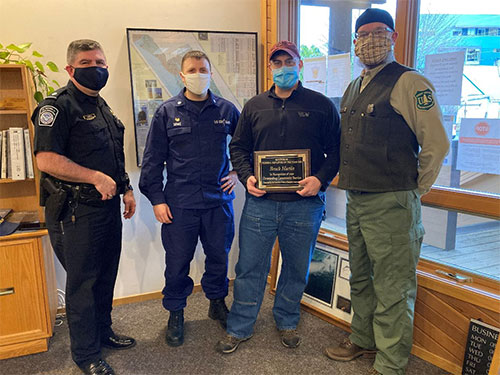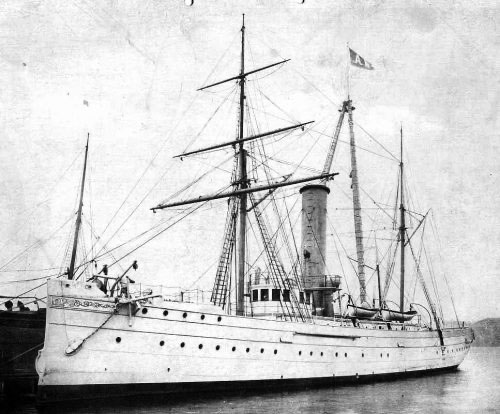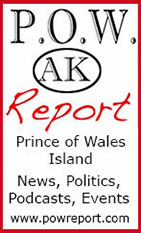









 Contact Contact 
 Webmail
Letters Webmail
Letters
 News Tips News Tips
 Copyright Info Copyright Info
 Archives Archives
Quick News
Search
 Alaska Alaska
 Ketchikan Ketchikan
 SE Alaska SE Alaska
Columns
- Articles
 Dave Kiffer Dave Kiffer
 Money Matters Money Matters
Historical
Ketchikan
 June Allen June Allen
 Dave
Kiffer Dave
Kiffer
 Louise
B. Harrington Louise
B. Harrington
Sports
 Ketchikan Links Ketchikan Links
Public Records
 FAA Accident Reports FAA Accident Reports
 NTSB
Accident Reports NTSB
Accident Reports
 Court Calendar Court Calendar
 Recent Filings & Case Dispositions Recent Filings & Case Dispositions
 Court Records Search Court Records Search
 Sex Offender Reg. Sex Offender Reg.
 Public Notices Public Notices
 Alaska Recall Alerts Alaska Recall Alerts
 Recalls.gov Recalls.gov
 AST Daily Dispatch AST Daily Dispatch
 KTN
Police Reports KTN
Police Reports
 Juneau Police Reports Juneau Police Reports
Weather,
Webcams
 Today's
Forecast Today's
Forecast
 KTN
Weather Data KTN
Weather Data
 AK
Weather Map AK
Weather Map
 AK Weathercams AK Weathercams
 AK Earthquakes AK Earthquakes

|
|

Sunday
March 07-09, 2021

Brock Martin Federal Employee of the Year
Forester Brock Martin accepted his Federal Employee of the Year Award from the Ketchikan Federal Executive Association
(From Left to right) Gilbert Varela, Ketchikan Port Director and Chief Supervisory Officer for the U.S. Customs and Boarder Protection; Commander Arthur Dehnz, Commanding Officer for Coast Guard Base Ketchikan, Ketchikan Misty Fjords Ranger District Forester Brock Martin; and Ketchikan Misty Fjords District Ranger Shane Walker pose for a photo March 1, 2021 after presenting the award.
Photo by USDA Forest Service.
Read More....
To have your photo(s) featured on the front page,
email your photo(s) to editor@sitnews.us
|
| Alaska: Dunleavy Announces COVID-19 Vaccine Available to All Alaskans; Alaska becomes first state in the nation to expand vaccine eligibility to all residents 16 and older; Public vaccine clinics to be held in Ketchikan - Alaska Governor Mike Dunleavy today announced effective immediately the COVID-19 vaccine is available for all individuals who live or work in Alaska and are age 16 and older, making Alaska the first state in the nation to remove eligibility requirements.
“This historic step is yet another nationwide first for Alaska, but it should come as no surprise. Since day one, your response to the pandemic has been hands-down the best in the nation,” said Governor Mike Dunleavy.
Dunleavy said, “I couldn’t be prouder of Alaska’s response. From being the first state to offer widespread testing, to maintaining one of the lowest mortality rates in the country, to rolling out vaccinations to every willing Alaskan, we got here by working together.” - More...
Tuesday PM - March 09, 2021
Alaska: Legislation introduced in US Senate to help Alaska cruise season; Would provide PVSA fix for cruise ships Posted & Edited By MARY KAUFFMAN - Friday, U.S. Senators Lisa Murkowski and Dan Sullivan (both R-Alaska) introduced the Alaska Tourism Recovery Act to alleviate the Passenger Vessel Services Act (PVSA) restrictions for cruise ships transporting passengers between the State of Washington and the State of Alaska.
This legislation will allow cruise ships to sail to Alaska without requiring that they stop in Canada, as U.S. law normally would require. Canada’s Interim Order No. 5 Respecting Passenger Vessel Restrictions Due to the Coronavirus Disease 2019 (COVID-19) prohibits cruise ships from navigating, mooring, anchoring or berthing in Canadian waters until February 28, 2022 or until the Canadian Government lifts the prohibition.
U.S. Congressman Don Young (R-AK) recently introduced companion legislation in the House of Representatives to provide a fix to the Passenger Vessel Services Act (PVSA) restrictions for cruise ships.
There is often confusion between the Jones Act and the Passenger Vessel Services Act (PVSA).
The Passenger Vessel Services Act (PVSA) is the section of the U.S. Code (46 U.S. Code Section 5103) that covers cruise ship passengers in the context of transporting them between two U.S. ports. With very few exceptions, passengers traveling between U.S. ports (such as Washington to Alaska ports) must do so on ships that were built in the U.S., are owned by U.S. companies and that adhere to the strict U.S. Coast Guard regulations and to be registered (flagged) in the United States.
The Jones Act (officially 46 U.S. Code Section 55102) was enacted in 1920 as part of the Merchant Marine Act with the intent of building and maintaining a secure merchant marine fleet. The law regulates maritime commerce in U.S. waters and between U.S. ports.
“Canada’s recent decision to prohibit Alaska-bound cruise ships from operating in Canadian waters creates legal hurdles that will hamstring the Alaska cruise season, creating additional economic strain on Alaska’s entire economy, especially in our Southeast communities. Alaskan communities are already facing severe economic hardship and uncertainty from missing one tourism season as a result of COVID-19. We have seen double-digit employment declines in Southeast and a more than 30 percent drop in revenue statewide. Missing another cruise season would only compound the economic fallout that has been devastating for so many families,” said Senator Murkowski.
Murkowski said, “By providing this technical fix to the PVSA for Alaska-bound cruise ships from the State of Washington, we are taking significant steps towards safely resuming cruise ship activity and economic certainty at a time when Alaskans need it most.”
“Canada’s recent decision to close its ports to passenger vessels for another year has dire implications for Alaska’s tourism industry and the hundreds of small businesses and tens of thousands of hard-working Alaskans who support it,” said Senator Sullivan.
Sullivan said, “These Alaskans have already had to grapple with a lost season last year due to COVID-19. They simply can’t afford to weather another season without the tremendous economic activity that cruise ships provide to our coastal communities." - More...
Sunday PM - March 07, 2021
Alaska: Alaska State Income Tax Proposed as Part of a Solution to Alaska’s Budget Deficit - Friday, Senator Tom Begich (D-Anchorage) introduced legislation to establish a flat five percent income tax based on your federal tax rate. Senate Bill 100 would generate new state revenue from residents and non-residents earning an income in Alaska. Currently, nine other states have a flat broad-based income tax ranging from three to 5.25 percent.
“The road Alaska is on has finally arrived at the edge of the fiscal cliff. Alaskans realize we need a balanced fiscal plan - a plan that relies on a balance of revenue sources and other solutions, not just on one or two major sources like oil and the Permanent Fund,” said Sen. Begich.
Begich said, “We need a plan where we all play a part - where Alaskans and those who make their profit or their living here invest directly in the services we all use. That commitment will, in turn, increase taxpayer scrutiny of the budgets we produce.” - More...
Sunday PM - March 07, 2021
|
|
Fish Factor: New surveys to assess the condition of the fishing industry one year into the pandemic By LAINE WELCH - It’s likely that no other fishing regions of the world reach out for stakeholder input as much as Alaska does to gather policy-shaping ground truth by state and federal managers and organizations.
That’s demonstrated by two new surveys – one which aims to quantify how much Alaska fishermen and processors paid out over the past year to lessen Covid impacts and how much relief they got from government programs; the other to learn what technology needs are tops with harvesters.
The Alaska Seafood Marketing Institute is collecting information not available elsewhere on the pandemic impacts.
Processors are being asked about financial losses due to Covid mitigation efforts, plant closures and employment changes, as well as their expectations for costs and employment levels in 2021, explained Jenna Dickinson, a consultant with the McKinley Research Group who is working with ASMI on the project. Processor costs include but are not limited to charter flights and hotel put-ups for worker quarantines, plant modifications, medical and testing supplies and related services.
Many fishermen also paid for similar coverages for their crews.
“We are similarly asking permit holders about the financial impacts of the pandemic, their hiring levels in 2020 compared to 2019 (pre-Covid), their estimates for anticipated costs in 2021, and whether the pandemic has caused them to sell or buy permits, boats or other assets, reduce crew, stop fishing entirely or make other changes to their fishing operations,” she explained.
Both processors and fishermen also are being asked whether Covid relief payments covered their 2020 losses, Dickinson added.
Data from the surveys, which will be revealed by early May, will be used to provide policy makers and other stakeholders a clear picture of the condition of the industry one year into the pandemic.
The surveys are open through March 18. Find both at www.alaskaseafood.org under Announcements.
Also, as part of ASMI’s ongoing work with McKinley to understand and report on Covid impacts on Alaska’s seafood industry, a series of briefing papers is available at the ASMI website.
The January brief, for example, describes Covid impacts to global freight costs, how a surplus of frozen farmed salmon causes uncertainty for wild salmon markets, and anticipated hits to tax revenues for coastal communities in 2021. - More...
Sunday PM - March 07, 2021
|
|
Alaska: Age 55 and above, essential workers, people with certain medical conditions and those who live in multigenerational housing are now eligible to be vaccinated - Governor Mike Dunleavy last week made the move to expand the vaccine eligibility criteria for the state-allocated COVID-19 vaccine significant as part of the process in accelerating Alaska’s recovery and getting the economy back up and running.
“By giving more Alaskans the opportunity to get vaccinated, the faster we can get Alaskan business thriving again,” said Governor Mike Dunleavy. “This is the jump start to get our economy going again.”
Alaska continues to lead the nation in vaccinations.
The newly eligible group, Phase 1c, will include persons ages 55-64 years, plus persons ages 16 and above who are essential workers as defined by the Cybersecurity and Infrastructure Security Agency (CISA), or who have certain medical conditions, or who live in multigenerational households or in communities with limited plumbing.
This newly expanded group will include 103,000 essential workers who work in fields such as education, food production and agriculture, manufacturing, public transit, grocery stores, transportation and logistics, food service, shelter and housing, finance, IT and communication, energy, media, legal, public safety, law enforcement, water and wastewater or with the U.S. Postal Service.
Those newly eligible can now sign up for an open vaccine appointment in their community. - More...
Sunday PM - March 07, 2021
Alaska: Grants available to help choke off chokecherry trees in Alaska - Once considered pretty, fragrant ornamental trees, chokecherry trees across Alaska are now the target of a widespread control effort aimed at reducing the impact of these prolific flowering trees because of the threat they pose to moose, salmon and native plant species.
The USDA Forest Service and the Alaska Division of Forestry are offering grants to local governments and non-profit organizations to remove two types of invasive chokecherry trees from Alaska.
Both Prunus padus, commonly known as European bird cherry (EBC), chokecherry, or mayday trees, and Prunus virginiana, commonly known as Canadian red, or chokecherry, were originally introduced in Alaska as attractive, ornamental trees.
However, each has since been deemed an invasive species with the potential to significantly affect native ecosystems in Alaska.
“While chokecherry trees are a springtime favorite of many Alaskans for their beautiful and aromatic blossoms, they are becoming what some ecologists call ‘rogue ornamentals,’ “said Jim Renkert, manager of the Division’s Community Forestry Program. “The pretty tree in our yards has gone feral in Alaska greenbelts and parks. In many areas it is aggressively outcompeting our native species and changing the habitat.” - More...
Sunday PM - March 07, 2021 |

Finding the great earthquake of 1900
By NED ROZELL
The U.S. Revenue cutter Manning, pictured here in 1898, was in Kodiak Harbor during the great earthquake of 1900.
Public Domain photo |
|
Alaska: Finding the great earthquake of 1900 By NED ROZELL - In 1900, Alaska was home to Native people in scattered villages and camps and recently arrived miners who scraped the creeks for gold. Many of the 60,000 souls on the rivers and hills of Alaska stumbled through a big shake that fall, especially those living on Kodiak Island.
The largest earthquake on the planet that year happened somewhere near Kodiak on Oct. 9, 1900. Scientists know it was big, but how big? And could it happen again?
Seismologist Carl Tape wanted to know more about the great 1900 earthquake. He works at the University of Alaska Fairbanks’ Geophysical Institute, studying Alaska earthquakes and what causes them. He became interested in the 1900 earthquake because he suspected it was a big one, maybe a magnitude 8.
But how does one find information about an event that happened 120 years ago?
Tape used all the tools he could find, and then he found a few more.
One source was the few preserved written records of people who were in Alaska in 1900 and felt the earthquake. Another was the readings of seismometers that recorded the seismic waves from a release of planetary tension that rang Earth like a bell.
Kodiak had been the first capital of Russian America in the 1700s. Russian colonization of the island had pushed out many of the Alutiiq Native people by 1867, when Alaska became a U.S. territory. By 1900, about 340 people lived in the town of Kodiak.
When the earth shook, news traveled slowly to the rest of America and the world.
“When this earthquake happened, the only way news got out was on the next ship out of Kodiak,” Tape said. “There was no telegraph.”
In a scientific report published in 1912 about two giant earthquakes that happened near Yakutat in 1899, Tape read details about the Kodiak earthquake of 1900, which shook people from their beds and toppled chimneys in the fishing town.
“You’ve got to be pretty close to a big earthquake to get that kind of shaking,” he said. “That told me it was worth understanding.”
That 1912 report led Tape to learn about biologist Wilfred Hudson Osgood. Osgood’s superiors at the Smithsonian Institution had sent him to Kodiak in 1900 to document mammals in the territory. - More...
Sunday PM - March 07, 2021
|
|
Analysis: Revisiting reparations: Is it time for the US to pay its debt for the legacy of slavery? By ANNE C. BAILEY - Some 156 years after the end of the Civil War and the official abolition of slavery through the 13th Amendment, the idea of reparations is gaining currency in Washington.
On March 1, Cedric Richmond, a senior adviser to President Joe Biden, suggested the White House could “start acting now” on the issue. The comment comes just weeks after a House committee chaired by Rep. Sheila Jackson Lee, Democrat of Texas, heard testimony on H.R. 40, a bill that would establish a commission on the legacy of slavery that would look at possible payments for descendants of enslaved people of African descent.
Having researched slavery for the past three decades, I have concluded that there are many rationales for reparations. There has never been a leveling of the playing field, or payments for the debt of unpaid labor over 250 years of slavery. Furthermore, Black contribution to the wealth of America has not been acknowledged or given its due, in spite of the fact that the Southern planters and Northern manufacturers who helped shape the nation were made rich by turning raw commodities harvested by enslaved people into commercial empires.
But there is an additional reason that looking at reparations now makes sense. At a time when Biden is trying to rebuild America’s image overseas, reparations for this unpaid debt could, I believe, drastically improve the United States’ international standing and serve as an example to other nations on how to deal with past inequities.
A promise never delivered
Campaigns for reparations have a long history. President Abraham Lincoln, who was known as “The Great Emancipator” in large part because he heeded the calls of Black abolitionists like ex-slave Frederick Douglass and signed the Emancipation Proclamation in 1863, was also a key advocate for a form of reparations.
Under Special Field Order No. 15, issued with Lincoln’s blessing in 1865, newly emancipated slaves were to receive “forty acres and a mule.”
Some freed slaves had already received their 40 acres at the time Congress passed the bill.
But this promise was not kept. After Lincoln was assassinated, President Andrew Johnson promptly vetoed the bill. According to noted economist William Darity, the cost of reneging on the promise to Black Americans was land worth more than US$1.3 trillion in today’s dollars.
While efforts to compensate Black former slaves were thwarted, remarkably, some white slave owners seeking compensation for the end of slavery were more successful. Through 1862’s District of Columbia Compensated Emancipation Act, slave owners were paid for their lost “property."
Debt compounded
After the reversal of early efforts to compensate people of African descent, Southern states continued to put in place policies to maintain white supremacy.
What followed were decades of institutional marginalization under Jim Crow segregation that further impeded Black progress. Racist housing policies, employment practices and inequitable education made it harder for Black Americans to accrue wealth.
During this period, calls for reparations continued. Ex-slave Callie House of Nashville, Tennessee, launched an ambitious reparations campaign in the 1890s calling on the government to pay pensions to formerly enslaved people.
A 1915 lawsuit against the U.S. Treasury calling for $68 million to be paid to former slaves for unpaid labor was dismissed on the grounds of “sovereign immunity,” under which a state is immune from civil action. And political activist Marcus Garvey in the 1920s made reparations central to his Universal Negro Improvement Association movement.
But the debt to Black Americans for the uncompensated labor of their ancestors was not paid. Moreover, the economic outcomes of sanctioned racism under Jim Crow meant that this debt only increased.
The protests and advocacy of the civil rights movement in the 1950s and 1960s bore great fruits, but no reparations. - More...
Sunday PM - March 07, 2021 |
DAVE KIFFER: A Time of Home (Not So) Alone - Well, it has certainly been a wild 12 months.
A year ago, at this time, we were just starting to talk about something called a "Corona" virus and people were already calling it the "beer " virus as if the effects were no worse than being forced to sit in the sun and drink watered down "resort" brewskis.
Yes, people were already starting to get sick, but it seems like every year there is something going around that makes people sick and well, since this was the 19th COVID (hence the name COVID 19) and the previous 18 had not wiped us out, well heckfire, what was the big honking deal? We lived through swine flu, we lived through avian flu, we lived through penguin flu.
What? You missed penguin flu?
The CDC (Center for DancingPenguin Control) defines penguin flu as the rapid concentration of penguin memes in the WiFi around us until it is virtually impossible to breath or go online without contracting the intense desire to "flu (sic) the coop" to the one place there are no "penguin memes." Antartica.
In Antarctica (which has no ants as a far I can tell) they have a different problem. Walrus memes. - More...
Sunday PM - March 07, 2021
MONEY MATTERS: IS IT TIME TO BUY BONDS?
By MARY LYNNE DAHL , Certified Financial Planner ™
- Lately, I have heard several people say that they have found bonds an attractive investment to purchase for their retirement portfolios. When I asked why they found bonds attractive, the answer usually centered around the fact that “bonds (government mainly) are paying almost 2%” as the answer. Government bonds are viewed as being conservative as investments, and therefore safe, so retirees often buy them for interest income during retirement.
There are several potential problems with this scenario. First, there is what is called “interest rate risk”, then there is the “RMD rate risk” and finally, there is the biggest risk of all…. inflation. I will cover all three in this article.
While it is true that some government bonds are now paying almost 2%, and also true that this is more than government bonds have been paying up until now, the increased interest is still pretty minimal, and more importantly, it may signal a potential danger facing retirement investors. My concern is not just that 2% is hardly worth taking any risk at all. It also is that many investors will overlook another risk, which is loss of principal if/when they sell their bonds prior to maturity. Let me explain.
Interest rate risk: New bonds are initially sold at “par”, which is $1,000, but if they are re-sold, by the first investor to a second investor, they sell in what is called the “secondary market”, at various prices other than “par”. If interest rates are rising above 2%, a buyer will look for a bond paying more than the 2%. The 2% bond is no longer worth as much as a new, 4% bond. - More...
Sunday PM - March 07, 2021
FINANCIAL FOCUS: Protect Benefits for Children with Special Needs Provided By BEN EDWARDS, AAMS® - If you have a child or other family member who has special needs due to physical or mental conditions, you face a variety of challenges planning for their care, including financial ones. You may also have some well-meaning relatives who want to help, but who may not realize that their moves could actually result in some serious lifestyle and monetary problems for your loved one. Fortunately, by planning ahead, you can avoid these potential traps.
As you probably already know, individuals with special needs are eligible for a variety of government benefits and local programs that provide assistance with housing, medical needs, specialized equipment, independent living, job training and other services. You may also know that some of these programs require participants to meet financial criteria to qualify for benefits. Usually, this isn’t a problem if your loved one has little income and few assets.
Difficulties can arise, though, when other relatives, such as grandparents, include loved ones with special needs in their estate plans by naming them as beneficiaries of insurance policies or retirement assets, or as beneficiaries of any trusts the grandparents have established. In these situations, loved ones who receive or inherit a sizable amount of assets may then be ruled ineligible for some important services.
- More...
Sunday PM - March 07, 2021
|

Political Cartoon: Coronavirus relief bill
by Dave Whamond ©, Canada, PoliticalCartoons.com
Distributed to subscribers for publication by Cagle Cartoons, Inc.

Political Cartoon: Saudi Coddle
by Steve Sack©, The Minneapolis Star-Tribune, MN
Distributed to subscribers for publication by Cagle Cartoons, Inc.

Political Cartoon: The Covid Coaster
by Jeff Koterba©, CagleCartoons.com
Distributed to subscribers for publication by Cagle Cartoons, Inc. |
Where is the wisdom in this ruling? By Louise Clark - I cannot help but question the wisdom of sending many boats and people up the Unuk River to catch one bucket per family of ooligan, with the price of fuel I’m sure everyone can afford to do that much less if you even own a boat. Would it not make more sense to send one boat of qualified fishermen to get enough for many families? Especially the elderly who cannot do that anymore.
Ooligan has been our treasured food since time immemorial. I’m 80 plus years but well remember after a long cold winter the wonderful blessing of the ooligan in March! Just tell me, how am I supposed to get my bucket of ooligan?
My grandmother, of the Teikweidi-Saanya Kwaan Xoots clan told my brothers they were guardians of the Unuk River and they were the only ones to fish the treasured ooligan not only for themselves but for others who wanted some. There are ancient pictographs along the Unuk which verify this. - More...
Sunday PM - March 07, 2021
Temporary fix proposed by Don Young addresses latest failure of the Jones Act By Paul Robbins, Jr. - While the Alaska Tourism Recovery Act would provide a needed but temporary reprieve for the numerous local economies that rely on cruise ship tourism, Representative Don Young fails to take aim at the true source of the problem and a bill that has plagued the American economy for over 100 years: The Jones Act.
Proposed and passed as a plan to ensure adequate domestic shipbuilding capacity and supply of merchant mariners for times of war or national emergencies; it has instead provided the world’s most restrictive example of global cabotage laws to the detriment of U.S. shipping costs, quality and shipbuilding capacity.
In the 1990’s, the U.S. International Trade Commission (USITC) published several papers on the Jones Act, yielding estimates of economy‐wide costs ranging from $656 million to $9.8 billion. The Government Accountability Office found the trade commission’s approach to be reasonable.
In addition to these massive costs, which are passed on to consumers, the Jones Act has atrophied domestic shipbuilding, diminished the merchant marine reserve, and hamstrung our ability to respond expeditiously and effectively to natural and man-made disasters. - More...
Sunday PM - March 07, 2021
Hug Your Trees By Donald Moskowitz - My wife and I are habitual tree huggers. We tend to all 24 of the trees on our property as often as possible, and they are wonderful trees. Back in 1978 our lot was devoid of all vegetation so we started planting trees soon after our house was constructed. We planted all of the trees in the first 10 years, including maples, birch, crab trees, willows and pines.
Unfortunately, many people today are not tree huggers. They cut down trees to make room for additions, pools, play areas and the availability of sunshine. The chain saws are very active and the thunder of fallen trees is quite earth shattering.
What bothers us the most is the lack of concern for the environment. Trees cleanse the air by absorbing pollutants generated by the burning of fossil fuels. In particular, trees absorb Carbon emissions and emit Oxygen. The more trees that come down the more Carbon in the air, and the greater the pollution and health risk to the population. - More...
Sunday PM - March 07, 2021
 |
2020 Southeast Conference Mid-Session Summit By Austin Otos - I recently had the opportunity to attend the 2020 Southeast Conference Mid-Session Summit via Zoom February 9-11th. The conference mainly focused on economic forecasts in key Southeast industries, economic resiliency, and economic strategies to rebound from the pandemic. The other topics in the conference included: local disaster preparedness/response, updates to mariculture and fisheries, this year’s state and federal legislative actions, and status on the University of Alaska system. I was able to attend sessions on: state legislator panel, federal updates from Lisa Murkowski and Don Young, Tourism, and fisheries/mariculture forecasts. - More...
Sunday PM - February 28, 2021
Email letters, opinions, OPEDs to editor@sitnews.us
|
Articles &
photographs that appear in SitNews may be protected by copyright
and may not be reprinted or redistributed without written permission
from and payment of required fees to the proper sources.
E-mail your news &
photos to editor@sitnews.us
Photographers choosing to submit photographs for publication to SitNews are in doing so, granting their permission for publication and for archiving. SitNews does not sell photographs. All requests for purchasing a photograph will be emailed to the photographer.
|
|












The Local Paper is
available online.
Click here for this week's printed edition (PDF)



|
|
![]() Contact
Contact ![]()
![]() Webmail
Letters
Webmail
Letters![]()
![]() News Tips
News Tips![]()
![]() Copyright Info
Copyright Info![]() Archives
Archives![]() Alaska
Alaska![]() Ketchikan
Ketchikan![]() SE Alaska
SE Alaska![]() Dave Kiffer
Dave Kiffer![]() Money Matters
Money Matters ![]() June Allen
June Allen![]() Dave
Kiffer
Dave
Kiffer![]() Louise
B. Harrington
Louise
B. Harrington ![]() Ketchikan Links
Ketchikan Links![]() FAA Accident Reports
FAA Accident Reports ![]() NTSB
Accident Reports
NTSB
Accident Reports![]() Court Calendar
Court Calendar![]() Recent Filings & Case Dispositions
Recent Filings & Case Dispositions ![]() Court Records Search
Court Records Search![]() Sex Offender Reg.
Sex Offender Reg.![]() Public Notices
Public Notices![]() Alaska Recall Alerts
Alaska Recall Alerts![]() Recalls.gov
Recalls.gov![]() AST Daily Dispatch
AST Daily Dispatch![]() KTN
Police Reports
KTN
Police Reports![]() Juneau Police Reports
Juneau Police Reports ![]() Today's
Forecast
Today's
Forecast![]() KTN
Weather Data
KTN
Weather Data![]() AK
Weather Map
AK
Weather Map![]() AK Weathercams
AK Weathercams![]() AK Earthquakes
AK Earthquakes








































